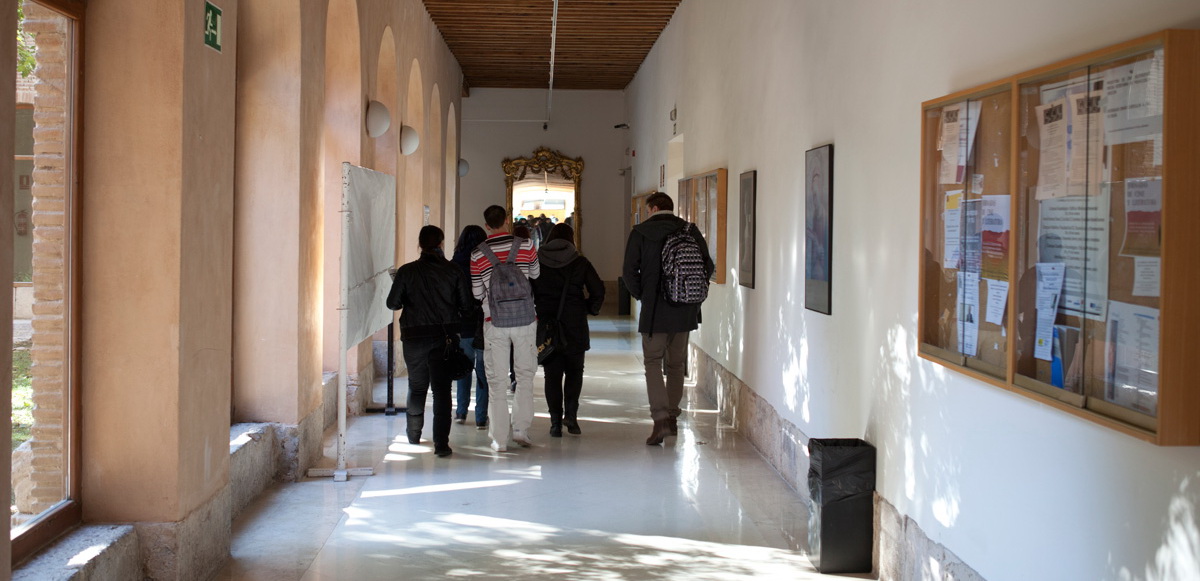
Objectives
This study aims to provide the scientific, technical and social-economic training necessary for a professional career in the development and applications of communication systems technologies, which are the foundations of various fixed and mobile services contributing to the development of this field.
The following areas are included in students training:
- Design of transmission, routing and radio frequency devices for telecommunication systems.
- Analogue and digital signal processing.
- Communication network architecture for fixed and mobile, personal, local and long distance environments and with various bandwidths.
- Assessment of the advantages and disadvantages of various technological alternatives for the implementation of telecommunication systems.
- Conception, modelling, measurement and development of telematics services and applications.
- Economic analysis, human resource and project management, and knowledge of laws, regulations and standards affecting telecommunications.
Holders of this degree should be capable of writing and developing technical projects, according to the training acquired; incorporating new methods and technologies and adapting to new and multilingual contexts; conveying the knowledge and skills they have acquired; making decisions and innovating in their field of work; based on professional ethics and assuming the responsibilities arising from their actions.
Competences
Structure and credits
| TYPE OF SUBJECT | ECTS |
|---|---|
| Basic Training (B) | 60 |
| Obligatory (Ob) | 108 |
| Optional (Opt) | 54 |
| Final Project (Ob) | 12 |
| TOTAL CREDITS | 240 |
Student profile
Students on this degree course should have a sound background in scientific and technical disciplines and an interest in information and telecommunication technologies. A good level of English proficiency is advisable.
They should have the ability for abstraction, attention, perception, reasoning, organisation and method, analysis and synthesis, as well as an interest in technology, imagination and a practical outlook.
Professional opportunities and officially regulated professions
This degree leads to the University Master's Degree in Telecommunications Engineering, which qualifies its holders to work professionally as Telecommunications Engineers.
They can perform expert tasks in sectors such as:
- Radio communications.
- Mobile communications, including 2G, 3G, 4G and their evolution.
- Telecommunications networks (cable, xDSL, Wi-Fi, Wimax). Optical systems. Surveillance and security.
- Radar technologies and electronic warfare.
- Digital signal processing applications.
- Audiovisual systems.
- Socio-economic, environmental and sustainability studies.
First academic year taught
Curso 2010/11 PRIMERO
Curso 2011/12 PRIMERO Y SEGUNDO
Curso 2012/13 PRIMERO, SEGUNDO Y TERCERO
Curso 2013/14 PRIMERO, SEGUNDO, TERCERO Y CUARTO
Academic Staff
Information leaflet
More information
- Teaching centre: Polytechnic School
- Official State Bulletin publication date: 09/03/2011
- Number of places available: 75
- Type of teaching: CLASSROOM
- Language of instruction: SPANISH, ENGLISH
- First academic year taught: 2010-11
Observaciones
Distinguido con el sello de excelencia EUR-ACE® que concede la agencia ENAEE, tras la evaluación del título con arreglo de una serie de estándares definidos, de acuerdo con los principios de calidad, relevancia, transparencia, reconocimiento y movilidad contemplados en el Espacio Europeo de Educación Superior.
Subjects, timetables and examinations
Study plan /of adaptation to the degree / Recognition of credits
External practicums
Final Project
International Programmes and Exchanges
Movilidad nacional
Registration
Antes de realizar la matrícula es imprescindible leer la información que figura en el apartado de planificación de la enseñanza y toda la información detallada siguiente:
Regístrate para obtener usuario y contraseña
Protección de datos personales
ACCESO AL PROGRAMA DE AUTOMATRÍCULA





